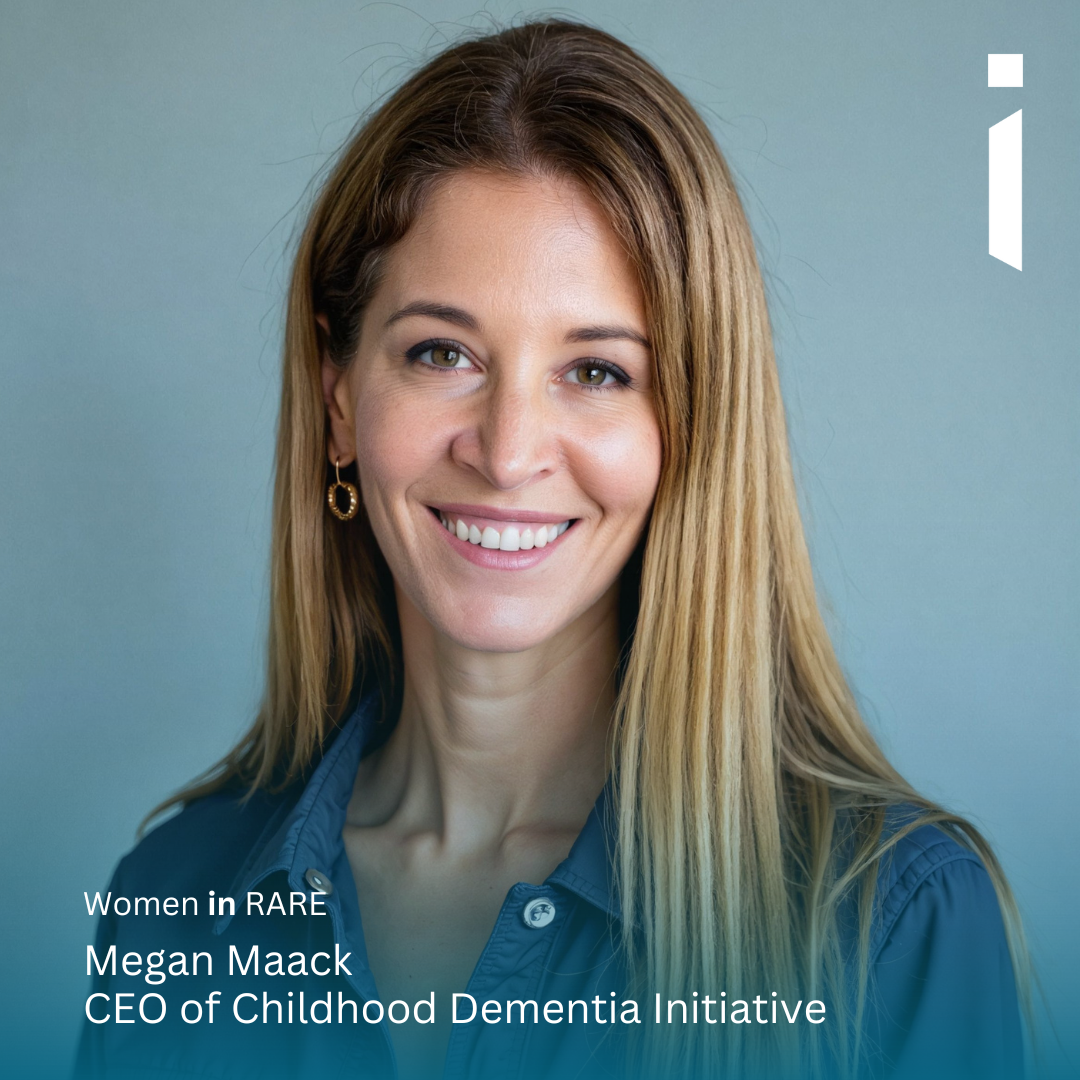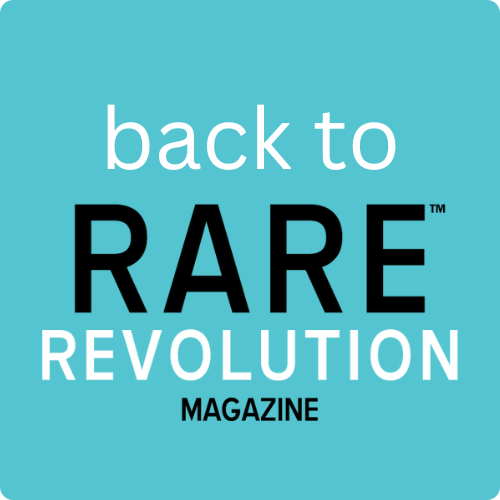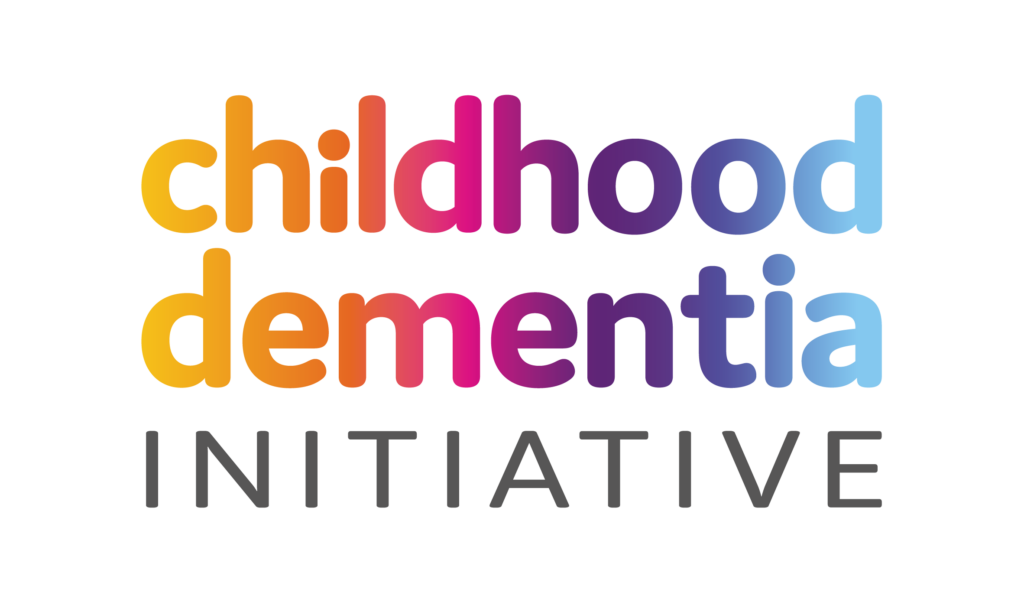Megan Maack of Childhood Dementia Initiative
Estimated reading time: 7 minutes

“I’ve found that building strong networks across sectors, maintaining unwavering focus on measurable impact, and leveraging my perspective as both a parent and professional have been powerful strategies for overcoming challenges and driving meaningful change in this field.”
I’m CEO of Childhood Dementia Initiative, which I founded in 2020 to drive a transformative response to childhood dementia. Childhood Dementia Initiative brings the 100+ neglected, life-limiting, rare genetic childhood dementia conditions together under one umbrella. This approach makes childhood dementia impossible to ignore and enables efficiencies, economies of scale and impact across research, healthcare and policy.
Prior to this, and following the diagnosis of my two children with a childhood dementia condition, Sanfilippo syndrome, I founded Sanfilippo Children’s Foundation, and delivered over $9M into research. During this time, I came to understand that the challenges faced in the Sanfilippo community were experienced across a range of genetic disorders with similar presentations, and siloed research, support and advocacy efforts were slowing progress.
As a leader in the advocacy and not-for-profit space, I draw on skills from my previous 15-year career as change manager, management consultant and project manager in companies including Deloitte.
What motivated you into your chosen career path?
In 2013, my daughter, Isla, and her little brother, Jude, were diagnosed with Sanfilippo syndrome. I learned my children would develop progressive brain damage and gradually lose all physical and cognitive abilities and their skills and functions, experience behavioural changes, and then die, likely before reaching adulthood.
I was increasingly aware that there is a range of rare genetic conditions that present as dementia in childhood. Isolated, siloed efforts across these disorders were clearly inefficient. So, I commissioned a Burden of Disease study, which revealed childhood dementia’s significant prevalence and impact.
Over 140 conditions are now known to cause childhood dementia and affect one in every 2,900 babies born. Bringing these conditions together is generating awareness, and shifts across healthcare, support, research and policy.
This progress is too late for Isla and Jude, but their lives have changed the world and their legacy will live on forever.
What do you see as some of the opportunities as a woman in your field?
The opportunities to work in the advocacy, social change and not-for-profit space are immense. Skills are transferable, but I also think attitude and approach can broaden women’s options.
I certainly draw on my previous experience across change management, management consulting, project management and my MBA. However, I consider my willingness to ask questions, for instance, even if I feared they might be considered obvious or irrelevant (aka the “stupid question”), as a genuine superpower—especially when entering a new sector or endeavouring to look at things in a novel way.
As a woman leading the Childhood Dementia Initiative, I’ve found a collaborative leadership style particularly effective in uniting previously siloed efforts.
Women often excel in complex, multistakeholder environments and taking a collaborative approach has been instrumental in successfully bringing together 100+ childhood dementia conditions under one umbrella and creating platforms where diverse voices contribute to our shared mission.
Perhaps the most significant opportunity has been leveraging the ability to build authentic, trust-based communities. The community we’ve built serves multiple functions—providing essential connections to families, creating pathways for knowledge exchange among professionals, and forming a unified advocacy platform that’s increasingly difficult for policymakers to overlook. This community we are building has the potential to transform individual tragedies into a collective movement driving systemic change.
What are some of the barriers to success as a woman in your field?
As a parent-advocate and CEO, I strategically balance sharing my experience while driving systemic change. My children are the motivation behind my work, of course. However, I’m mindful of the possible assumption that I’m a mother first, strategic leader second.
The two aren’t mutually exclusive. In fact, I’d go so far as to say, the two enhance each other. I am laser-focused on Childhood Dementia Initiative achieving its mission because I understand its critical importance.
Many women working in this field, myself included, are motivated by lived experience, often as mothers to children impacted by the conditions we’re dedicated to addressing. There is a significant caregiving burden that typically falls to women when a child has complex medical needs. This creates an incredibly difficult balancing act between the demands of our advocacy work and the intensive needs of our children and families. Conference calls around medical appointments, documents drafted during hospital stays, and networking events missed due to care crises become our reality.
I also have lived experience that informs my understanding of the importance of using family insights to develop solutions. As a mother of two dying children, my role helps turn their devastating diagnoses from hopelessness into meaningful change. They will live on through their impact in the world.
I’ve found that building strong networks across sectors, maintaining unwavering focus on measurable impact, and leveraging my perspective as both a parent and professional have been powerful strategies for overcoming these challenges and driving meaningful change in this field.
What is one piece of advice you would give your 10-year-old self?
Trust that inner voice that questions the status quo. The curiosity that makes you ask “why?” and “why not?” will become your superpower.
Don’t be afraid to ask questions others might think are obvious—they rarely are.
Get to know lots of different people and really listen to them and get to know them. You’re going to enjoy meeting many different people and bringing them together.
Being brave is like using a muscle. Things that might have seemed hard, get easier the more you use it.
Can you tell us about your current work priorities and focus or a particular project you are working on?
Childhood Dementia Initiative is driving world-first action for every child living with dementia. As the first organisation globally to address childhood dementia as a collective, we aim to deliver sustainable global health solutions through three key outcomes:
-accelerating access to treatments and cures;
-ensuring equitable and quality care for affected children and families;
-and establishing childhood dementia as a global health policy priority.
Our work includes building an evidence base through pioneering research, developing national frameworks for care, advocating for increased research funding, creating resources for healthcare professionals, supporting affected families through peer mentoring and self-advocacy tools, and fostering collaboration across sectors.
Children with dementia face 100% mortality, with half dying before age 10. Every 11 minutes, another life is taken by childhood dementia. We work urgently to transform the landscape for these children.
One of Childhood Dementia Initiative’s key projects is leading a Global Consensus Project to establish international agreement on childhood dementia terminology, definition and research approaches.
We started in Australia and made significant progress. We’re working with the government to transform healthcare and support for families, Australia was the first country to include children in its National Dementia Action Plan, and the first to fund research across the childhood dementia disorders concurrently. The Consensus Project will help us jump shift action from Australia onto the global stage.
Action today is fragmented by inconsistent terminology. Disorders are variously described as ‘childhood dementia’, ‘progressive intellectual and neurological deterioration’, or ‘neurodegenerative’. This fragmentation impedes research, clinical care, funding and advocacy efforts.
Our project will use a structured Delphi methodology facilitated by independent health consultancy, 67health. We will engage specialists across fields and continents. The outcome: an internationally accepted definition, supporting resources and a framework for coordinated data collection.
This consensus will create the foundation for accelerated research progress through standardised approaches. It’s a critical step in improving survivorship and quality of life for children with dementia globally.
Connect with Megan
Women in RARE is a celebration of women working in the RARE space in science, research, industry and advocacy.
To access more Women in RARE articles click below.


